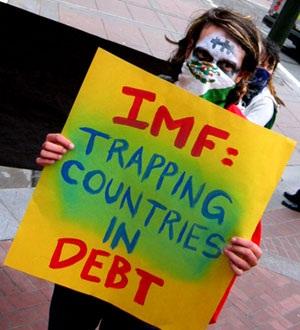IMF history - what happened in South Korea?

Ajai Chopra, the head of the IMF team negotiating the Irish 'bailout', previously worked in the IMF's Asia-Pacific department and led its 'rescue' mission to South Korea after a financial collapse in 1997. So how did that work out? State interventions were curtailed and the government budget was slashed (leading to massive redundancies), despite the fact that government overspending had nothing to do with the Korean crisis. Korean trade unions and other forces opposed these policies but they were quickly assured that their opposition would count for nothing, as documented by Naomi Klein in her book The Shock Doctrine:
"The end of the IMF negotiations coincided with scheduled presidential elections in which two of the candidates were running on anti-IMF platforms. In an extraordinary act of interference with a sovereign nation's political process, the IMF refused to release the money until it had commitments from all four main candidates that they would stick to the new [IMF] rules if they won. With the country effectively held at ransom, the IMF was triumphant: each candidate pledged his support in writing... you can vote, South Koreans were told, but your vote can have no bearing on the managing and organisation of the economy."
The parallels with the current Irish situation are striking as cross-party consensus is sought for the broad thrust of an austerity programme that nobody has voted for. Fintan O'Toole has rightly argued that:
"Having an election after agreeing a four-year deal that will shape all key decisions is like debating which brand of condom to buy after you've become pregnant. It is a parody of democratic choice."
But the IMF is not in the business of democratic choice (nor is the EU) and they will seek to make sure that any election taking place before the deal is signed is equally a parody. Any such election will be fought on the detail of the cutbacks – not on whether they should occur at all or not, or even over what the timescale for them should be (Fine Gael and Labour both agree the debt-GDP ratio has to be cut to 3% by 2014). The IMF, the EU and the Irish political élite will seek to ensure that issues such as insisting on those (German, French, British and other) financial institutions who lent to Irish banks to accept at least a share of the losses are not on the electoral agenda.
The consequences of going along with the IMF's recommendations are likely to be catastrophic. Between 1996 and 1999, South Korea's unemployment rate tripled and the proportion of the population identifying themselves as middle-class fell from 64% to 38%. These precedents are ominous: unless we can force alternative responses onto the agenda, we are looking at a future of mass immiseration.
